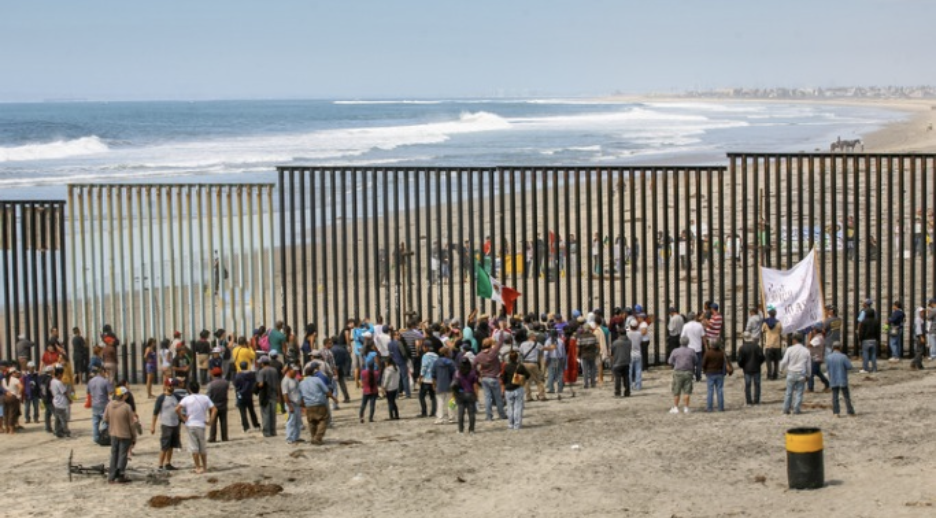The continued conflict between the Federal Government and Texas has been a clear demonstration that the government’s long-standing immigration policies have been ineffective at actually solving the causes of this multi-faceted issue.
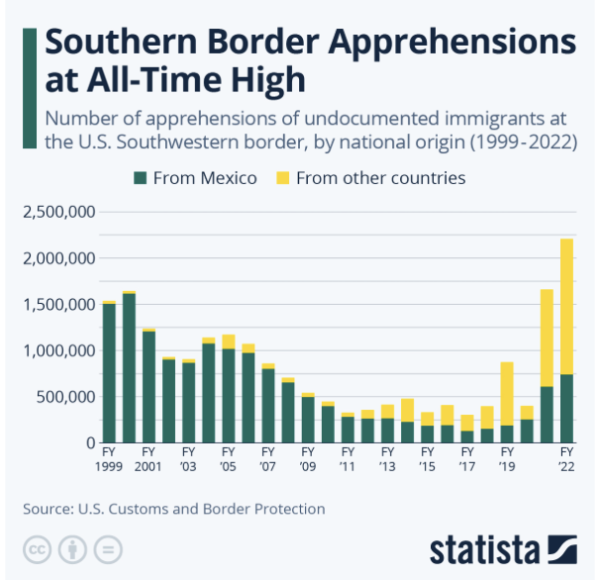
Immigration policy, in the United States, has reached new heights of controversy in recent years, expedited by the surge in migration from Latin American nations and the increased difficulty that state governments have had in managing the growing costs of migration.
As a result, tensions over migration continue to skyrocket across the country, most clearly demonstrated by the recent conflict between Texas and the Federal government regarding border control. The conflict continues to be unresolved and a stark reminder that there is no easy fix to the issue of immigration without serious federal reform.
During the COVID-19 pandemic, border policies were remarkably strict due to Title 42, a policy that allowed Border Patrol to immediately expel migrants to contain the spread of the virus. The Trump administration frequently weaponized the policy, resulting in the immediate deportation of 74% of migrants who arrived at the southern border. The Biden administration maintained the policy but gradually relaxed its usage as the COVID-19 crisis abated, resulting in a 20% decrease in the number of migrants expelled. This correlated with a dramatic increase in migration to the US, with Border Patrol reporting a whopping, 1,659,206 encounters with migrants, exceeding previous highs.
The increase cannot, however, be solely attributed to Biden’s decision to relax the Trump-era border policy. Countries across Latin America have been rocked with instability since the end of the pandemic, with an increase in food insecurity, poverty, and violence. These problems were compounded by climate disasters like Hurricane Iota and Eta which struck Central America, directly impacting 7.3 million people. Millions of people, especially those who rely on agriculture for income, were forced to leave their countries as their livelihoods were destroyed due to the impacts of natural disasters.
One such case was Dagoberto Pineda, who lost his job on a banana plantation and his home as a result of Hurricane Eta. Pineda, with no hope of a better life in his country, chose to escape to the United States with help from smugglers.
His story clearly illustrates how migrants don’t choose to resort to illegal activities but are rather forced into it due to circumstances often outside of their control.
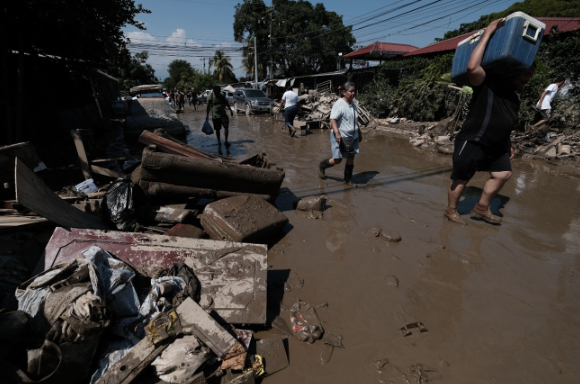
While many are naturally sympathetic to the plight of migrants, the ramifications of migration surge across the country, especially in cities, have been severe. An example is New York City, which is legally obligated to provide temporary shelter to those without it. New York’s shelter law has amassed enormous criticism in recent months due to a dramatic increase in migrants coming to the city, making it incredibly difficult for the city to provide housing without overspending.
The city has already spent 1.7 billion on providing basic services like housing to migrants, straining the city’s already limited resources.
As migration continues to strain the country’s resources, backlash towards migrants is rising to unprecedented degrees, especially at the southern border in Texas. Texas has cracked down on migration at the border, with the government passing a slew of measures to deter migrants from entering. These include a law that allows police to arrest migrants on the spot, and punish them with up to 20 years in prison.
Another law would increase funding for the construction of a border wall by $1.5 billion. These policies, viewed by many as unnecessarily draconian, have received substantial criticism from human rights groups, who have pointed out that the money spent on such policies could be allocated to caring for migrants.
When enforcing the state’s restrictive migration laws, the Texas National Guard has often acted in an unnecessarily callous manner towards migrants, clearly in need. In one instance, video footage captured two guards on a boat, sailing past a woman and a child who appeared to be in danger of drowning. The woman could be heard calling out to the guards, “I’m begging you, please help me. I really can’t [walk] anymore”. Nevertheless, the guards ignored her and her child’s cries for help. While the woman and the child managed to survive, the incident illustrates the clear dangers that migrants face on the border.
The legality of the state’s actions towards migrants has been increasingly called into question especially due to recent actions. The state established a floating buoy barrier across the Rio Grande River to prevent migrants from swimming to shore. The government even went as far as to erect razor wire fences to prevent border patrol agents from providing aid to migrants.
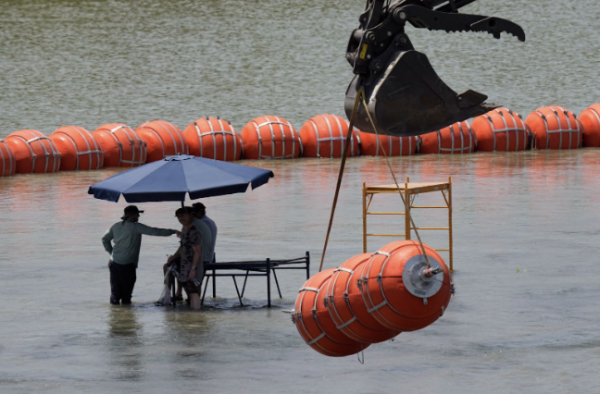
The impact of the State’s actions has already been severe. The Texas National Guard was recently accused of barring federal border police from rescuing drowning migrants resulting in the deaths of three migrants, two of whom were children.
The state’s actions, widely viewed as inhumane and unconstitutional, were challenged in the Supreme Court. The court ruled that Texas lacked the authority to block Federal Agents from aiding migrants, a clear affirmation of the federal government’s supremacy over border policy. Nevertheless, the decision has sparked heated debate throughout the country.
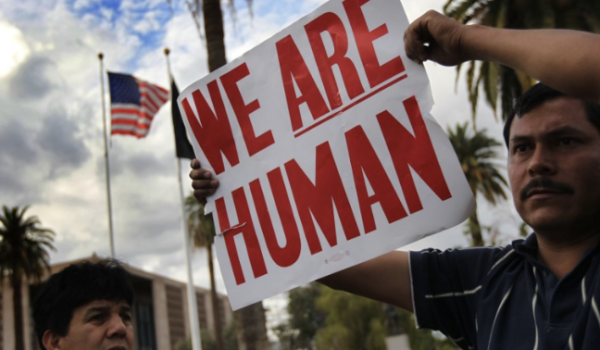
Texas governor Greg Abbott responded with a defiant statement arguing that Texas’s actions were in accordance with a state’s constitutional right to self-defense. Even though the consensus among constitutional scholars is that a state cannot supersede the federal government’s authority, the Texas Government has continued to maintain its razor-wire fences.
The conflict has become increasingly politically charged as Republican governors across the country have rallied behind Texas, with many arguing that the federal government’s decision is an abuse of authority from the Biden administration. Whether the President will enforce the court’s decision remains yet to be seen.
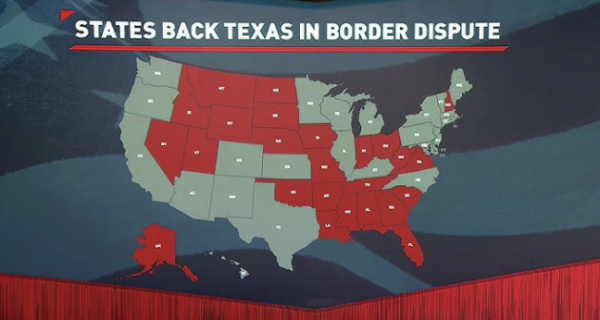
The Biden administration has responded to the growing tensions over the border by presenting legislation in Congress to reform immigration policy. The bipartisan bill would require the Border Patrol to process a minimum of 1,400 migrants who enter the U.S., but allow the Department of Homeland Security to shut down the border if the number of migrant encounters exceeds 4,000 over seven days. However, the bill was blocked by the Senate Republicans, a clear sign that the country should not expect much legislation in the coming months to resolve the border conflict.
The continued conflict between the Federal Government and Texas has been a clear demonstration that the government’s long-standing immigration policies have been ineffective at actually solving the causes of the multi-faceted issue. It has further revealed how dangerous backlash against migration prevents many from viewing the issue with a holistic humanitarian lens—a necessity in all circumstances. Nevertheless, the United States will be unable to truly move forward on matters of immigration until it moves past the partisan lines that divide the nation to work towards a better future for all.


